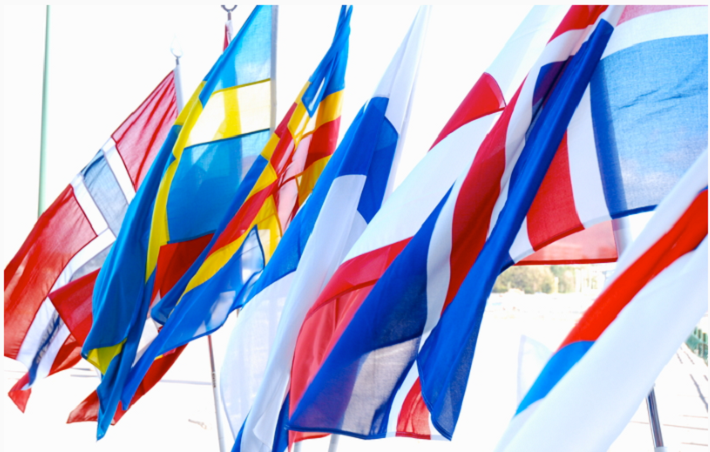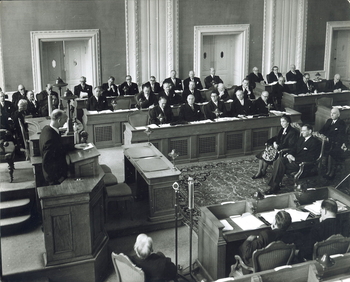Seventy years of the Nordic Council

The 87 members of the Nordic Council promote solutions to make the everyday lives of the people even better, focusing in particular on cross-border freedom of movement.
In recent years, foreign and security policy has become increasingly important after being taboo for the first several decades of official co-operation. The Council now adopts positions on topical foreign-policy issues and promotes democracy.
Nordic co-operation still enjoys widespread popular support. An opinion poll in 2021 showed that as many as 86% consider it important.
Important arena
The current President of the Nordic Council, Erkki Tuomioja, has been a member since 1970, interrupted only by a period as a government minister. He sees the Nordic Council as an important political arena.
“Nordic co-operation is very popular among the people of the Region, so we have a duty to live up to their expectations and produce results. We can see that our countries face similar challenges in many areas of society. The Nordic Council plays an important role as an arena for sharing experiences and learning from each other, but also one where specific proposals can be drawn up for solutions that benefit all of our fellow citizens.”
Facts:
The Nordic Council is the official body for interparliamentary co-operation. It has 87 members from Denmark, Finland, Iceland, Norway, Sweden, the Faroe Islands, Greenland and Åland.
The Council meets five times a year. The most important meeting is the Session, which takes place every year in week 44.
The Council has a presidium, four committees and five party groups.

